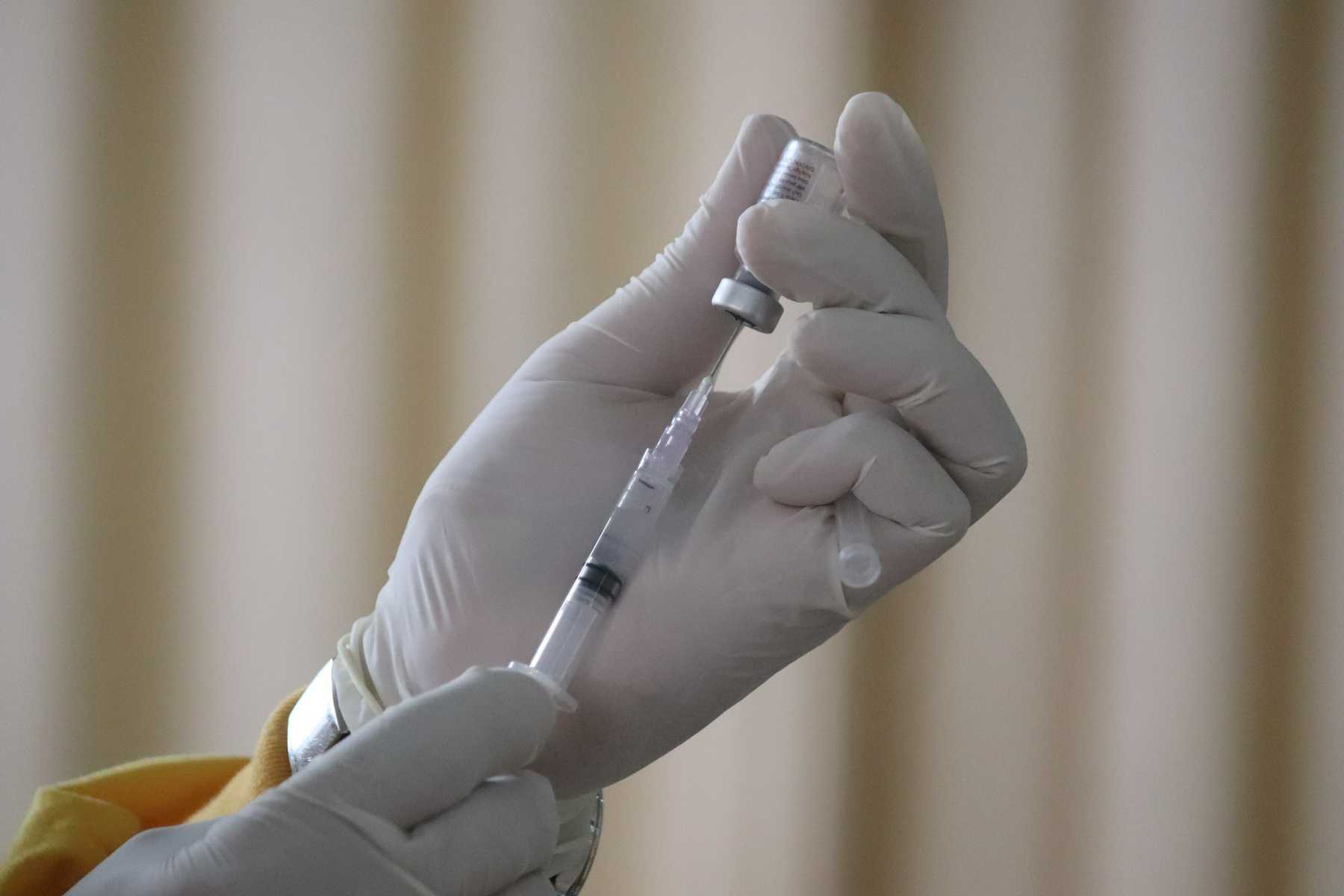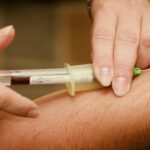
RSV is a significant health concern, especially for elderly adults, babies, and toddlers. Respiratory Syncytial Virus (RSV) is not just another common cold. It is a serious respiratory illness with the potential to escalate quickly into a severe health threat. A Respiratory Syncytial Virus vaccine plays a vital role in combating RSV. This blog post explores RSV vaccines, their effectiveness, and availability.
What is RSV?
Respiratory Syncytial Virus, commonly known as RSV, is a common respiratory virus typically causing mild, cold-like symptoms. RSV is a seasonal illness common in fall and winter. Although often causing mild symptoms, it can lead to serious health issues, especially in infants and young children. Other vulnerable groups that may have more serious respiratory impacts from RSV include older adults and people with weakened or compromised immune systems.
RSV is highly contagious, spreading from person to person through respiratory droplets that travel when someone coughs or sneezes. Common symptoms of RSV include sneezing, fever, wheezing, and runny nose. When RSV escalates, it may become a more serious concern involving bronchitis or pneumonia. Severe cases of RSV may require hospitalization and in some instances, may be life-threatening.
Population groups at high risk for severe RSV infections include:
- Premature infants
- Babies and children under the age of 5
- Young children with congenital heart disease
- Young children with chronic lung disease
- People with compromised immune systems
- Older adults, especially elderly adults with with heart or lung conditions
How RSV Vaccines Work
The RSV vaccine mechanism stimulates the body’s immune response to the virus. When administered, the vaccine introduces components of the virus to the recipient’s system. The components of RSV are recognized as foreign invaders by the immune system, triggering immune responses, including the activation of immune cells targeting the virus’s characteristics. Vaccines triggering immune responses also allow the immune system to memorize the characteristics of the virus they are targeting, prompting future responses if the disease re-enters the system.
A primary action of the RSV vaccine is the production of antibodies, or proteins. The proteins are designed to neutralize the virus to prevent it from infecting cells. When a vaccine is effective, it will help combat infection. It will help the body perform swift, effective future responses, offering long-term immunity. Two RSV vaccines are available for adults over 60. There is one FDA-approved RSV immunization for babies.
Types of RSV Vaccines
There are several types of RSV vaccines used to combat the virus. Each one has unique characteristics designed to provoke an immune response.
- Inactivated Vaccine: Inactivated RSV vaccines contain inactive or dead RSV virus particles. These inactivated or dead particles cannot cause the disease but can stimulate the immune system to combat the virus. Inactivated vaccines have a longer shelf life.
- Live Attenuated Vaccines: Live attenuated RSV vaccines contain a weakened form of the virus that mimics natural infection. They are typically administered nasally, which simulates natural exposure to the infection. Introducing a weakened, live form of the virus through a naturally occurring nasal pathway results in a strong immunity in the mucus membranes.
- Subunit Vaccines: Subunit vaccines include proteins or other specific parts of the RSV virus. Administering subunit vaccines minimized the risk of vaccine-related illnesses while still introducing enough of the virus to prompt an immune response.
Effectiveness of the RSV Vaccine for Older Adults
Clinical studies show promising results regarding the effectiveness of the RSV vaccine in older adults. The FDA recently approved two new RSV vaccines for adults over 60 years. Successful RSV vaccines like Arexvy from GSK are known to decrease the likelihood of infection by 82.6% and lessen the severity of symptoms by 94.1% when and if the infection is contracted. Another positive impact of the vaccine is the significant reduction in hospitalizations for RSV-related issues in older adults.
As with many vaccines, there is some risk of side effects. The RSV vaccine side effects reported by some patients include pain where the shot was administered, headache, joint pain, or stiffness.
Is There an RSV Vaccine for Children?
Yes and no. In July 2023, the FDA announced approval for Beyfotus, an RSV immunization for babies and toddlers. It is crucial to note that the process for babies and toddlers is an immunization vs. a vaccination. Where vaccines introduce a tiny part of a live or deactivated part of the RSV virus, the RSV immunization for children does not contain any part of the RSV virus. Instead, immunization is an injection of synthetic antibodies designed to fight off RSV.
FAQ’s about RSV and the RSV Vaccine
What are the symptoms of RSV?
In adults and older kids, RSV symptoms mimic cold-like symptoms with a runny nose, coughing, fever, sneezing, and wheezing. RSV symptoms often present in stages. Pediatricians can identify RSV quickly. It is crucial to see your healthcare provider if you are concerned about RSV in your young children or elderly in your care.
How to test for RSV?
Rapid RSV antigen tests use nasal fluid samples to test for proteins from the virus. Tests can be administered through a healthcare provider or at-home services like Fast Lab.
Who should get an RSV Vaccine?
Adults aged 60 or over and babies and toddlers can benefit from RSV vaccines or immunizations. Other high-risk populations include anyone with a compromised immune system. If you are at risk or care for someone who is, discuss preventing RSV with vaccines with your healthcare provider.
What vaccines are approved for RSV?
- RSVPreF3 (Arexvy, FSK) for adults ages 60 and over.
- RSVpreF (Abyrsvo, Pfizer) for adults ages 60 and over.
- *Beyforus (irsevimab-alip) for premature newborns, infants, and children up to 24 months.
*Beyforus is an immunization, not a vaccination.
Fast Lab
It is critical to note that vaccine information and the effectiveness of vaccines are subject to change based on new, updated information. All information in this article is based on current information available at the time of publication. Always check with your healthcare provider about decisions concerning your or your child’s healthcare.
At Fast Lab, we offer flu and RSV tests. It is a rapid diagnostic test designed to detect the presence of the the flu and RSV. Contact us today to learn more about scheduling your at-home test.






